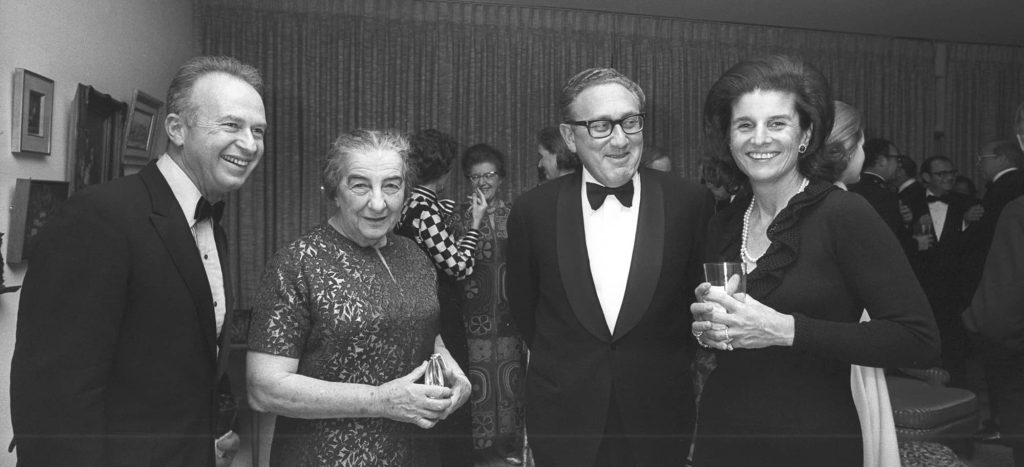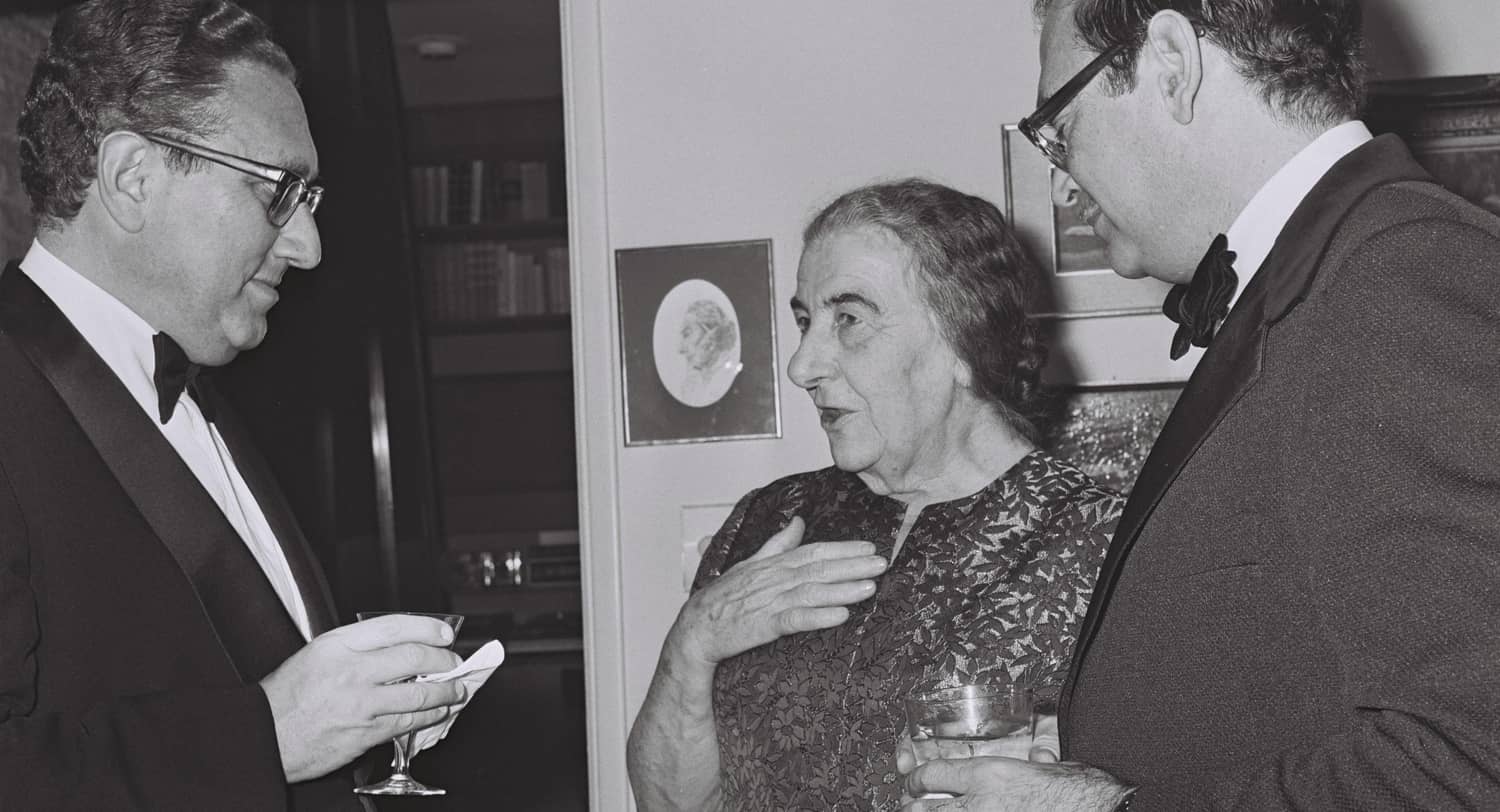The Yom Kippur War of 50 years ago remains a watershed event in the Middle East. It marked the end of an era, which Uri Misgav recently called the 25-year Arab-Israeli war (1948-73), and opened an era in which Israel, in a slow and long process, is being accepted by her Arab neighbors. That process began in direct Israel-Egypt talks on the road leading from Suez City to Cairo immediately after the war, at the 101st kilometer marker on the road, and it continues today.
The war is subject to revisionist interpretations, including Amir Oren’s latest column in the JST, “Was Groupthink Responsible for Israel’s Surprise in the 1973 War, Or Is That Just Another Faulty Assumption?”. In it, Oren makes some unfounded assertions regarding Prime Minister Golda Meir, that she refused to respond to Egyptian President Sadat prewar overtures or American attempts at mediation that could have prevented the war.
Oren neglects to describe Meir’s acceptance, in meetings with Henry Kissinger in March 1973, seven months before the war, of an American proposal. According to the memoirs of Yitzhak Rabin, then Israel’s ambassador to the United States, Meir approved Kissinger’s proposal of recognizing Egyptian sovereignty in the Sinai in return for Israel maintaining security posts there.
Furthermore, newly published research also shows that Meir and Defense Minister Moshe Dayan were even ready to offer a withdrawal of Israeli forces as far as the eastern entrances of the Gidi and Mitla Passes in the Sinai.
In Kissinger’s subsequent meeting with Egyptian national security advisor Hafiz Ismail in Paris on May 20, 1973, Ismail asked Kissinger, according to the now-public memorandum of conversation, “what he thought was the most Egypt could get from Israel. Dr. Kissinger said that he thought that the most he could foresee now Israel giving was nominal Egyptian sovereignty in the Sinai with Israeli security positions at key points.”
Ismail told Kissinger that he would discuss this proposal with Sadat and get back. When no word was sent back, Kissinger tried again to elicit an Egyptian response, using the Shah of Iran as an emissary.
It was also clear from this Kissinger-Ismail meeting before the war that Egypt required full Israeli withdrawal from territories conquered in 1967 as a precondition to any direct talks. Kissinger tried to persuade Ismail that this would only be a first step towards a final agreement and that the US was ready to make that clear through a presidential declaration, if necessary.

Oren omits mention of Meir’s other outreach to Sadat before the war. At Meir’s request, West German Chancellor Willy Brandt sent Lothar Lahn, a German diplomat, to Cairo in late June 1973. Lahn conveyed Meir’s message that Israel would be ready to meet with Egyptian officials at any level, secretly or publicly, and that Israel would be ready to make concessions. This message was met with a cold shoulder by Hafiz Ismail and Sadat’s advisor Hassanein Heikal, who again stressed that Israel should withdraw from all the territories occupied in 1967 before any negotiations could be held.
This precondition to direct talks – full withdrawal of Israeli forces on all fronts – was reiterated in a secret message from Ismail to Kissinger on October 7th, the second day of the war.
It was only at the end of the war, when Israeli forces had encircled 30,000 Egyptian forces of the Third Army on the west bank of the Canal, that Egypt agreed to accept what Israel, and Kissinger, were offering all along: partial bilateral agreements, which would eventually lead to a final peace agreement.
Sadat himself recognized Meir’s key role in starting the Israel-Egypt peace process. In his condolence letter to Israel’s President Yitzhak Navon following Meir’s death on 8 December 1978, he wrote:
“I must mention [Golda Meir] had an undeniable role in starting this peace process when she signed with us the first disengagement agreement.”
Finally, it is certainly worth pondering whether the Yom Kippur War was inevitable. As Hebrew University professor Elie Podeh, a longtime critic of Meir’s government. recently wrote,
“. . .It is hard to imagine Israel and Egypt signing a peace agreement before the [1973] War. It was the result of the War that brought about a certain balance of power, changed positions and basic concepts on both sides that prepared the ground for a historical process which led to the signing of the [peace] agreement.”

